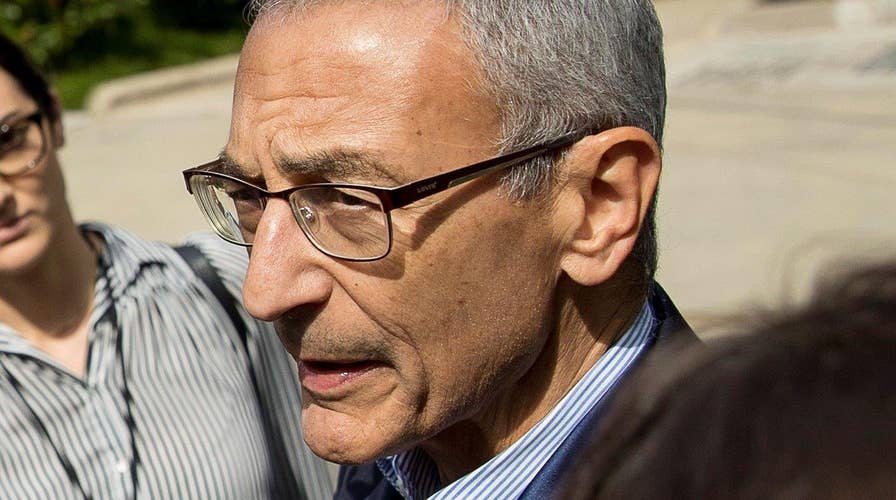Will leaked Podesta emails hurt Clinton's campaign?
A fair and balanced debate on the WikiLeaks dump
ABOARD THE CLINTON CAMPAIGN PLANE – A top adviser to Hillary Clinton on Tuesday accused a longtime Donald Trump aide of receiving "advance warning" about WikiLeaks' plans to publish thousands of hacked emails and suggested the Republican candidate is aiding the unprecedented Russian interference in American politics.
Clinton adviser John Podesta pointed the finger at Trump adviser Roger Stone, who he said has been in touch with WikiLeaks founder Julian Assange. Podesta also raised as evidence an August tweet in which Stone said Podesta's "time in the barrel" was coming. The tweet was sent shortly after WikiLeaks published scores of hacked emails from other Democratic officials.
"I think it's a reasonable assumption, or at least a reasonable conclusion, that Mr. Stone and the Trump campaign had advance warning about what Assange was going to do," Podesta told reporters aboard the Clinton campaign plane. Podesta acknowledged the evidence was "circumstantial."
Podesta confirmed that the FBI is investigating the hack of his private email account as part of the ongoing probe in other Democratic Party hackings by groups with Russian ties. Last week, intelligence officials said they believe the individuals responsible are working for Russian intelligence and coordinating with Assange on the political hacking.
Podesta said Russia's actions may be driven by Trump's policy positions, which he said are more in line with Russian foreign policy than U.S. foreign policy. But he also suggested the driving force could be "Mr. Trump's deep engagement and ties with Russian interests in his business affairs."
The Clinton campaign would not confirm the authenticity of Podesta's leaked emails, noting that Russian hackers often fabricate documents.
"The pattern is they hack, they leak truthful things, and then they build up to leaking documents that are either doctored or wholly fabricated," said Jennifer Palmieri, Clinton's communications director.
WikiLeaks dropped the first batch of Podesta's emails shortly after news organizations released a video in which Trump is heard making sexually predatory comments about women. That video has deeply damaged Trump's campaign, leading several Republicans to revoke their support for the businessman.
Podesta said the timing of his emails' release was an "awfully curious coincidence."
"Mr. Assange wanted to change the subject," Podesta said. "He didn't succeed in doing that."












































